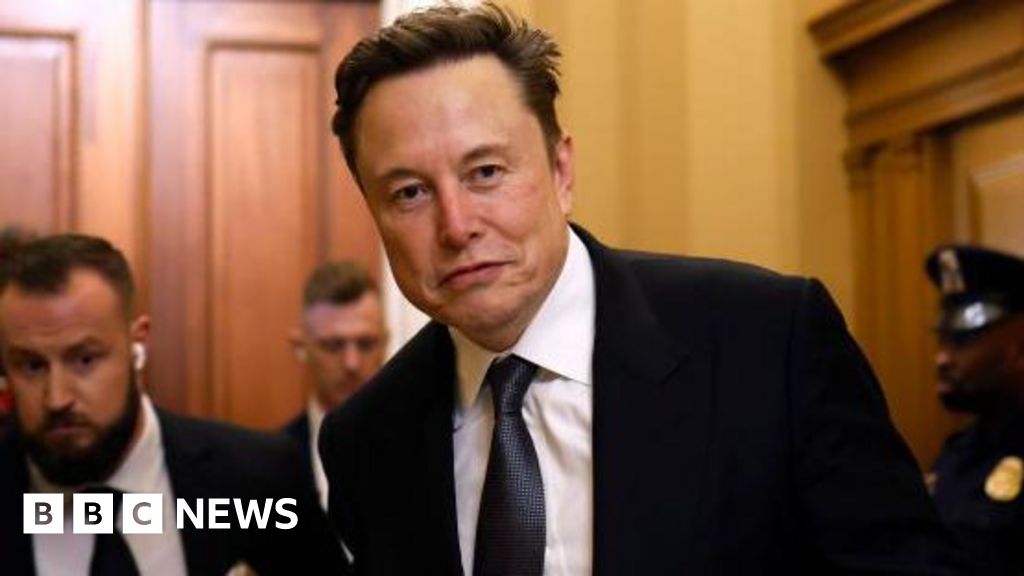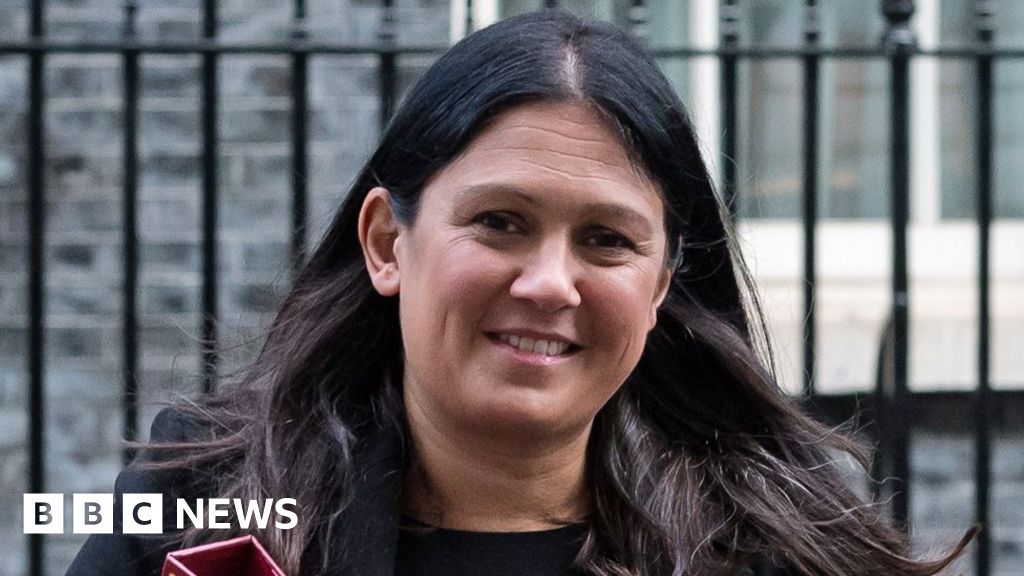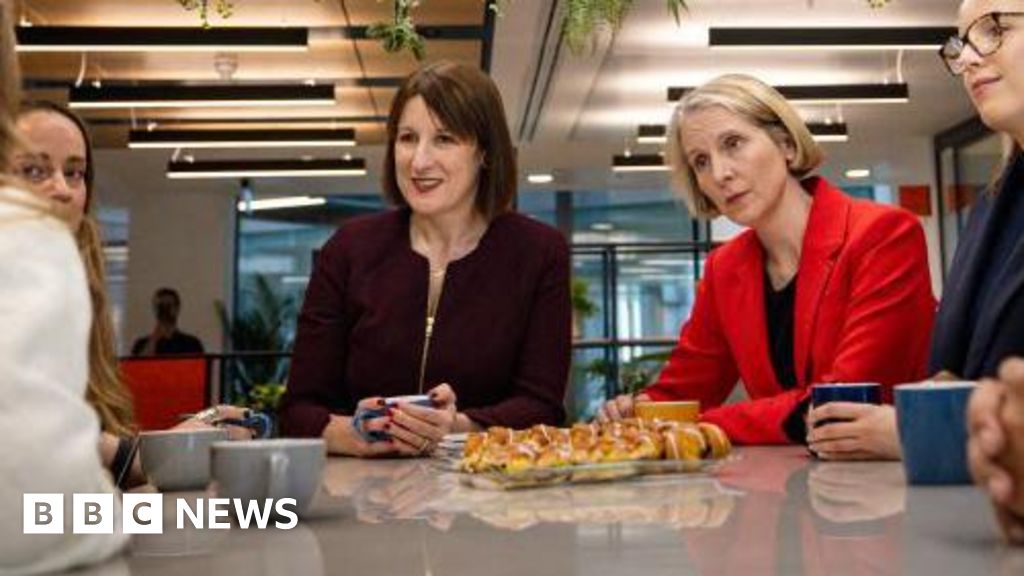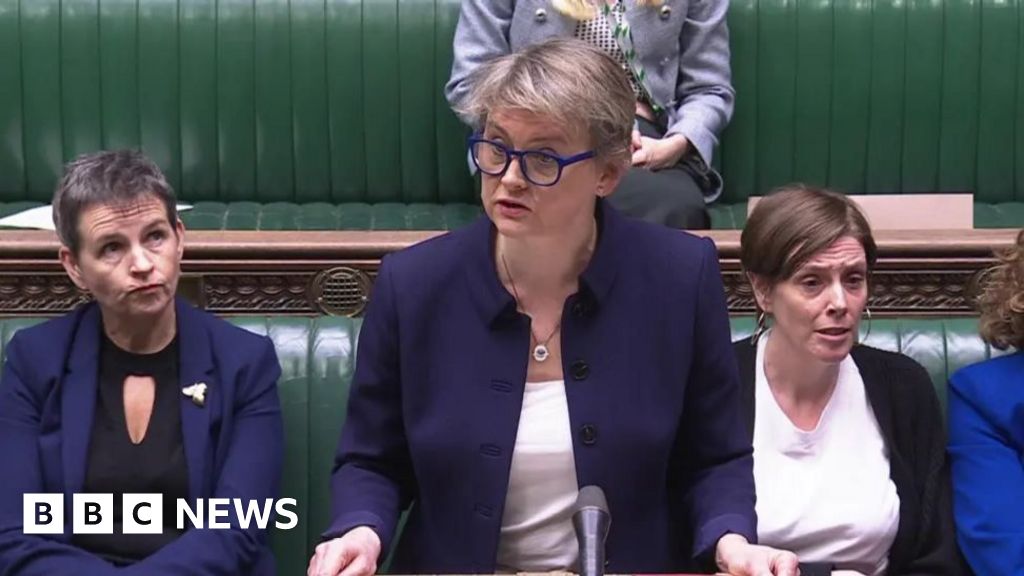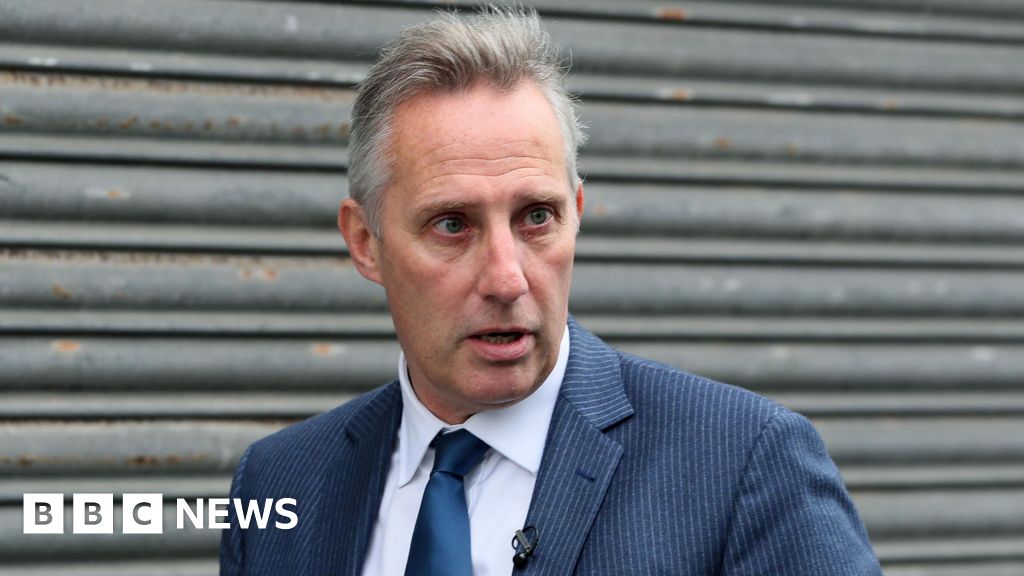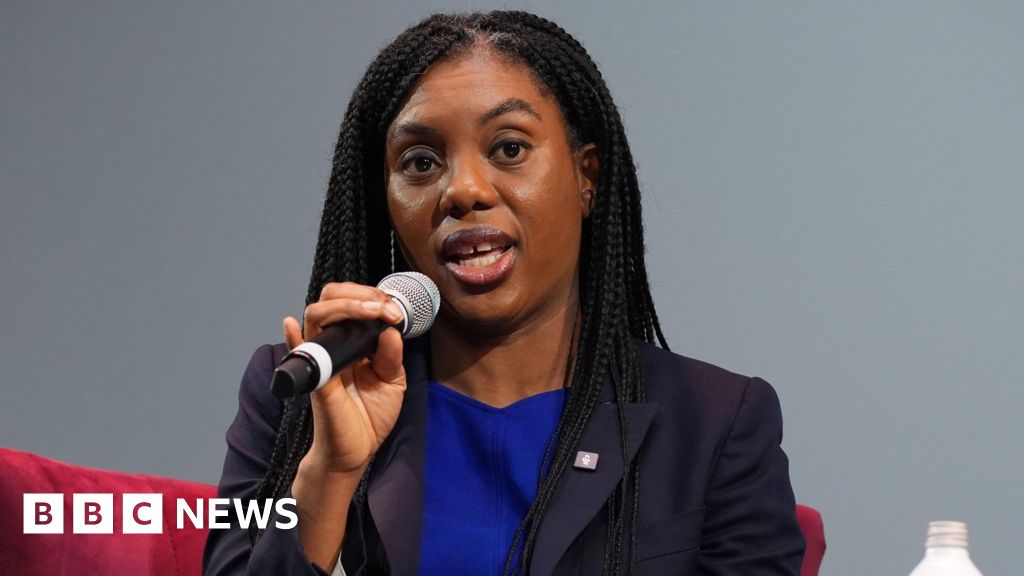
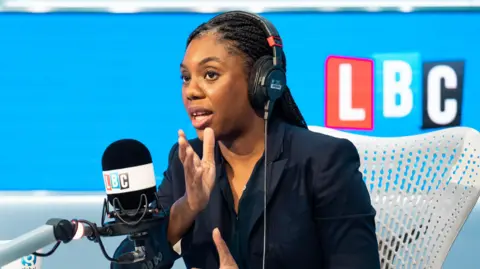 PA Media
PA Media
Conservative leader Kemi Badenoch has triggered a row after saying her party wants to explore greater means-testing of government support.
Speaking on LBC Radio, she said the UK had a poor record in prioritising assistance to those who need it the most.
Her comments, in response to a question about the state pension, led other parties to accuse her of wanting to water down the "triple lock" uprating policy.
A Tory spokesman denied this was on the cards, accusing Labour and the Liberal Democrats of misrepresenting her.
He added that the party would "look at means testing" - but did not specify which benefits would be in scope.
During a phone-in on LBC, Badenoch said the UK, like other Western nations, faced a "structural problem" because people were living longer while having fewer children.
She added that "serious thinking" was required to address the financial impact of more government spending "on later life".
Asked whether this included the "triple lock" policy - under which state pension payments go up every year by the highest of inflation, average earnings or 2.5% - she replied: "That's exactly the sort of thing that the policy work we are going to be doing will look at".
But pressed on whether her party would really look at the "triple lock", she then added: "No, we are going to look at means-testing".
She went on to add: "Means-testing is something which we don't do properly here.
"Starting with the triple lock is not how to solve the problem, we need to start with why are we not making the same kind of money we used to make?"
'Bungling Badenoch'
However, her comments were seized on by opposition parties to suggest the Tories were planning to shift their stance on the triple lock, which Labour, the Conservatives and the Liberal Democrats all pledged to continue in last year's general election.
Labour said the Tory leader had "let the mask slip" and was preparing to cut the state pension, while the Liberal Democrats said "bungling Badenoch" was preparing to make pension cuts "her first new policy".
A Tory spokesman denied this, adding the party had "always protected the triple lock" and accusing Labour of "skewing her words for political gain".
However, the party has yet to clarify which benefits it would consider subjecting to means-testing, when the level of support is linked in some way to a claimant's income or wealth.
Current benefits paid in this way include housing benefit, Universal Credit and pension credit, a top-up paid to poorer pensioners.
Speaking later on Sky News, Tory co-chair Nigel Huddleston did not clarify the party's position either, but said it wanted to look at a "whole bunch of policy areas".
It is not the first time Badenoch has been embroiled in a row over comments made during media appearances.
As a Tory leadership candidate last September, she appeared to suggest maternity pay was "excessive" before later arguing she was making a more general point about the burden of regulations on business.
'Unsustainable'
Originally a Lib Dem manifesto commitment in the 2010 general election, the state pension triple lock was embraced by the Conservatives when the two parties entered office as a coalition government.
It has since has been in place ever since, save for a temporary suspension during the Covid pandemic, and has also been adopted by Labour.
At the last election, Rishi Sunak pledged to strengthen the uprating policy further by applying it to pensioners' income tax thresholds too.
However some economists have questioned whether the policy is financially sustainable given increasing life expectancy. Others have questioned whether it is fair, given working-age benefits do not increase in the same way.
Shadow chancellor Mel Stride has argued the policy is "unsustainable" in the "very, very long term".
Since taking office Labour has decided to means-test the winter fuel payment, a £200-£300 pension supplement that was previously paid to all pensioners.
The Conservatives have opposed that decision, with Badenoch arguing the government's decision to link eligibility to pension credit means pensioners who are "on the breadline" will miss out.
She added, however, that she supported the idea it should not be paid to "millionaires".

 18 hours ago
3
18 hours ago
3



